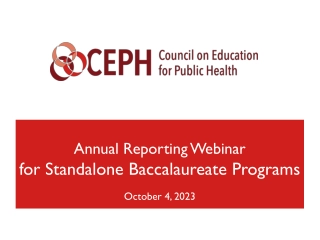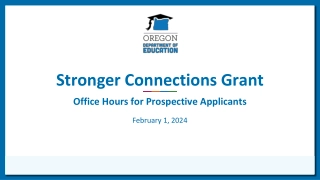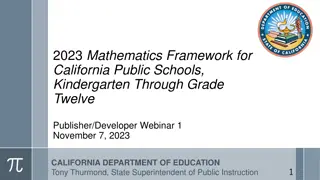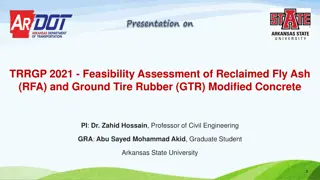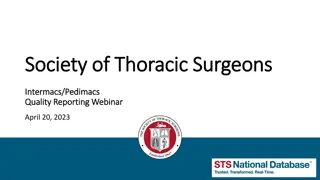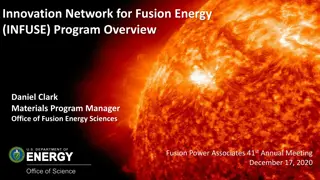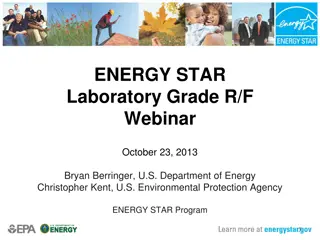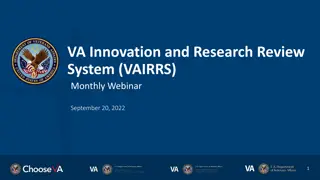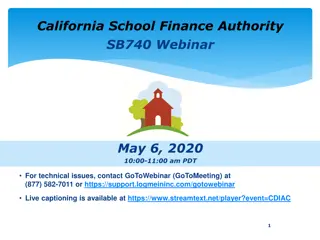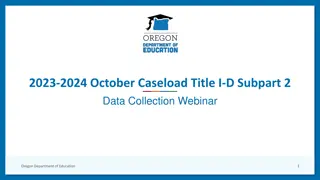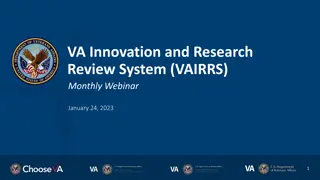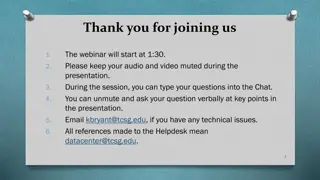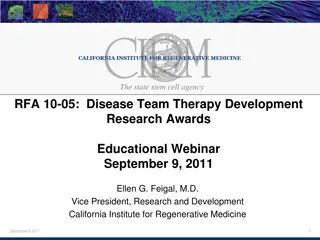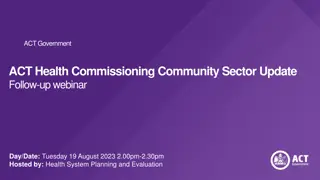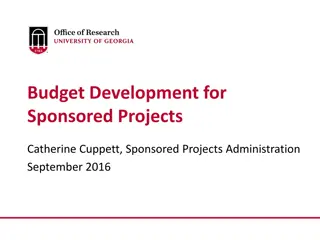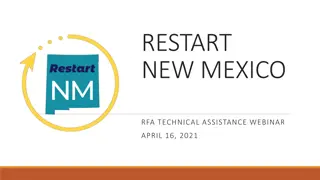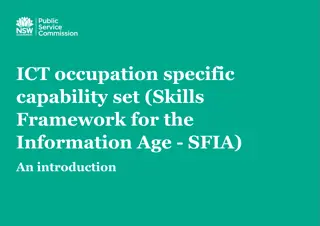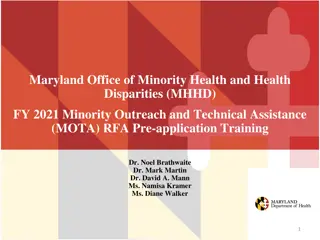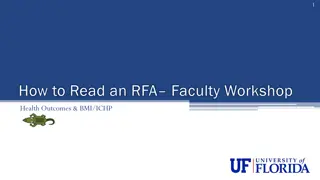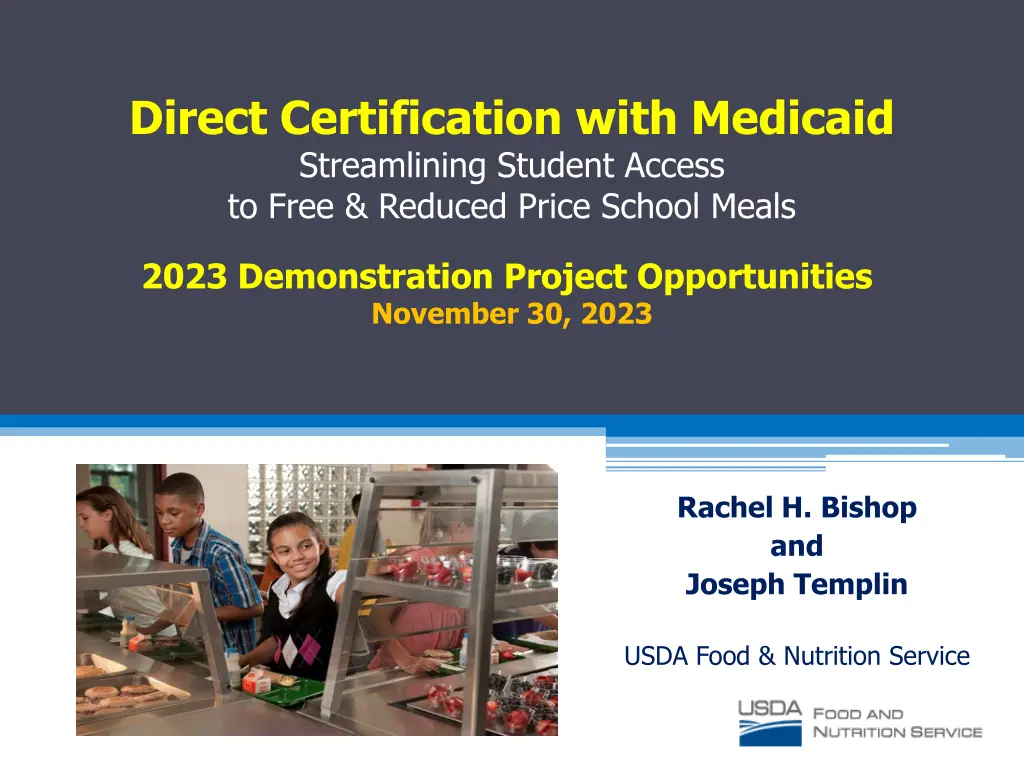
Streamlining Student Access to School Meals 2023 Demonstration
Explore the opportunities of Direct Certification with Medicaid to streamline student access to free & reduced-price school meals in 2023. Learn about the benefits, key considerations, and project details. Participating states' insights and best practices included. Apply for the demonstration project to improve program access and integrity.
Download Presentation

Please find below an Image/Link to download the presentation.
The content on the website is provided AS IS for your information and personal use only. It may not be sold, licensed, or shared on other websites without obtaining consent from the author. If you encounter any issues during the download, it is possible that the publisher has removed the file from their server.
You are allowed to download the files provided on this website for personal or commercial use, subject to the condition that they are used lawfully. All files are the property of their respective owners.
The content on the website is provided AS IS for your information and personal use only. It may not be sold, licensed, or shared on other websites without obtaining consent from the author.
E N D
Presentation Transcript
Direct Certification with Medicaid Streamlining Student Access to Free & Reduced Price School Meals 2023 Demonstration Project Opportunities November 30, 2023 Rachel H. Bishop and Joseph Templin USDA Food & Nutrition Service
2 We ll cover Demonstration Project Background Key Considerations Opportunity Overview Participating States' Insights and Best Practices Please post questions in Chat Webinar PowerPoint and responses to Chat questions will be posted.
3 Benefits of Direct Certification Direct Certification uses data matching to automatically certify students for school meal benefits. Reduces Burden: Eliminates need for application completion, submission, certification, and verification process for families and local education agencies. Improves Program Access: Reaches eligible students who are not receiving NSLP and SBP benefits. Impacts Program Integrity: Increases student certification accuracy. Increases Identified Student Percentages: Increases # of students certified for free meals without an application for Community Eligibility Provision measures. (Note: Does not apply to students directly certified for reduced price meals)
4 DC-M Demonstration Projects Directly certify students using State Medicaid agency data outcomes Streamlines F/RP certification for eligible students. Eliminates need for household application process for eligible students participating in Medicaid. Enables evaluation of effect on Federal costs and Program participation. Agencies Collaboration USDA FNS as lead partnering with HHS Center for Medicare & Medicaid Services (CMS) to provide technical assistance to State agencies. NSLP State agencies as lead partnering with State Medicaid agencies to develop data sharing agreements and processes. Authority Section 18(c) of the Richard B. Russell National School Lunch Act, 42 USC 1769(c).
5 RFA - Significant Dates SIGNIFICANT DATES Webinar with interested State agencies November 2023 Applications due for participation in demonstration projects beginning SY 2024-2025, to the Food and Nutrition Service, including an option to apply early for demonstration projects beginning SY 2025-2026. Notifications to State agencies of selection/non- selection. Technical assistance webinar with selected National School Lunch Program (NSLP) State agencies and partnering State Medicaid agencies. January 16, 2024 February 2024 February 2024
6 RFA - Significant Dates This RFA offers States the opportunity to submit applications by January 16, 2024, for selection in February 2024, and demonstration project implementation beginning as early as SY 2024-2025. States may submit applications at any time after that date for demonstration projects beginning in SY 2025-2026 and SY 2026- 2027. FNS is also inviting any State which has previously submitted an application for participation in a DC-M demonstration project via a previous RFA to update the application and resubmit. FNS will consider applications received from States proposing demonstration projects beginning through SY 2026-2027.
7 RFA - Resources Appendix A - Application to Participate in Demonstration Projects to Evaluate Direct Certification with Medicaid. Appendix B - Letters of Commitment Templates DC-M FNS Web Page: Search FNS Direct Certification Medicaid or click https://www.fns.usda.gov/cn/direct-certification-medicaid-demonstration-project
8 State Agencies Direct Certification Process State Medicaid Agency Child Nutrition Agency Local School Districts & Schools Identify children meeting income & eligibility criteria for direct certification Send data for children to CN State agency CN State agency (or local school district) matches Medicaid list with school enrollment data to find students in their schools eligible for direct certification Identify directly certified children in their point of service systems Provide the free or reduced price meal to the matched student
9 Definitions in Demonstrations Medicaid is The medical assistance program established under Title XIX of the Social Security Act Includes -- Regular Medicaid and Expanded Medicaid (e.g., expansions of children s Medicaid eligibility using Children s Health Insurance (CHIP) funds authorized under Title XXI). May include -- Children enrolled in Federally-funded Medicaid only for treatment of an emergency medical condition, if they satisfy all other Medicaid eligibility requirements (must get clearance from FNS). Does not include CHIP programs separate from the state s Medicaid program.
10 Definitions in Demonstration Projects Eligible child must meet both criteria 1. Receives, or lives in a household (as defined in 7 CFR 245.2) with a child who receives medical assistance under the Medicaid program; and 2. Has family income as measured by the Medicaid Program, before application of any disregard, including an expense-related, block, or other disregard, that does not exceed National School Lunch Program (NSLP) demonstration income standards applicable to family size.
11 Definitions in Demonstration Projects NSLP income eligibility standards will be used in the demonstration projects 130% of the Federal Poverty Level (FPL) for free meal eligibility 185% of the FPL for reduced price meal eligibility
12 Definitions in Demonstration Projects What does income as measured by the Medicaid Program, before application of any expense, block, or other disregard mean for the demonstration projects? For nearly all Medicaid beneficiaries, a portion of their otherwise-countable income is excluded, or disregarded, in determining income eligibility. Income that is disregarded for purposes of Medicaid eligibility will not be excluded for purposes of this demonstration.
13 Definitions in Demonstration Projects Modified Adjusted Gross Income (MAGI) For most Medicaid populations, countable income is based on the income rules of the Internal Revenue Code (IRC). MAGI refers to the IRC rules, with further changes under the Medicaid program. In determining MAGI income eligibility, all state Medicaid programs apply a disregard to otherwise-countable income equivalent to five percentage points of the FPL, for those individuals whose family income is above the highest relevant eligibility standard. We refer to this as the 5 percentage point disregard in this presentation.
14 Definitions in Demonstration Projects MAGI Categories: Income Definition for Direct Certification Demonstration Projects For purposes of the direct certification demonstration projects, family income as measured by Medicaid, before the application of any disregard, including an expense-related, block, or other disregard means MAGI income amount as calculated/measured by Medicaid, before application of the five percentage point income disregard.
15 Definitions in Demonstration Projects MAGI Categories: To identify children eligible for direct certification, State Medicaid agencies should Determine family s MAGI income amount, before application of the 5 percentage point disregard. Compare MAGI income amount to NSLP income standard for household size used in Medicaid eligibility determination. Income must not exceed 130% of the FPL for free meal eligibility. 185% of the FPL for reduced price meal eligibility.
16 Definitions in Demonstration Projects Application of 5 percentage point disregard -- Through the DC-M demonstration projects, we ve learned that States use different methods for application of the 5 percentage point disregard. Regardless of the application method used, the results are the same.
17 MAGI Examples Example 1: State s Medicaid income standard = 133% FPL. Child s household MAGI income = 129% FPL State Medicaid agency does not apply 5 percentage point disregard since child s household meets 133% FPL standard without disregard. Child is eligible for Medicaid. Child is eligible to be directly certified for free school meals since MAGI income, before 5 percentage point disregard, does not exceed 130%
18 MAGI Examples Example 2: State s Medicaid income standard = 133% FPL Child s household MAGI income = 134% FPL. State Medicaid agency applies 5 percentage point disregard which reduces household income to an effective 129 percent FPL, so child is eligible for Medicaid. Child is not eligible to be directly certified for free school meals since MAGI income, before 5 percentage point disregard, is over 130% FPL. Child is eligible for reduced price meals, since MAGI income does not exceed 185% FPL
19 Definitions in Demonstration Projects Non-MAGI Categories Some Medicaid applicants and beneficiaries have their income eligibility determined by use of the rules of federal cash assistance programs, such as the supplemental security income (SSI) program. Cash assistance-related income eligibility determinations are non-MAGI determinations. Some children have their Medicaid eligibility determined using non-MAGI rules. Non-MAGI income eligibility determinations typically include application of a host of disregards of otherwise countable income; e.g., a flat amount of monthly income ($20, or greater), a type of income (interest from a bank account), or an expense-related one (for certain medical expenses)
20 Definitions in Demonstration Projects Non-MAGI Categories: To identify children eligible for direct certification, Medicaid agencies should Determine family s gross income, before application of State-specific expense-related, block, or other disregards. Compare family s gross income amount to NSLP income standard for household size used in Medicaid eligibility determination. Income must not exceed 130% FPL for free meal eligibility, or 185% FPL for reduced price meal eligibility.
21 Key Demonstration Policies Children determined eligible to be directly certified for free meals based on Medicaid data: are not categorically eligible for meal benefits must meet an income standard.
22 Key Demonstration Policies (continued) State agencies/LEAs must: use automated data matching with Medicaid eligibility records to directly certify students not certify eligibility based on family providing a Medicaid case number or letter from State Medicaid agency.
23 State Agency Agreements Data-sharing agreements between NSLP State agency and State Medicaid agency must be established early, and include: Method and frequency for data-sharing. Data fields/attributes to be shared. How students will be identified to be directly certified as eligible for free and reduced-price school meals. How data will be protected to ensure compliance with Federal disclosure statutes and regulations.
24 Requirements and Considerations for Selection States participating in existing demonstration projects May continue current demonstration projects without change. No new application is required to continue participation. May expand direct certification with Medicaid and/or add direct certification for reduced price meals. New application is required for the new, expanded participation.
25 Requirements and Considerations for Selection State Agencies must Submit a timely and complete application package. Demonstrate Readiness: Accurate data-sharing agreements in place Testing completed between the NSLP and Medicaid agencies to ensure accurate identification of eligible children (receiving Medicaid and meeting income standards for f/rp meals). Matching process and mechanism for providing match data to school districts is in place. Training completed with school districts. POS systems can process Medicaid matches. Able to report data for evaluation study.
26 State and Federal Collaboration Selected State Agencies must Be ready to accurately identify children eligible to be directly certified, based on MAGI and Non-MAGI income determinations and NSLP income standards. Be ready to have in place data-sharing agreements between NSLP State agency and State Medicaid agency. Agree to cooperate with approved data requests from FNS for the required evaluation study. FNS and CMS will Provide coordinated technical assistance to State agencies selected for participation in the demonstration projects. Technical assistance will include guidance and communications including training webinars, calls and meetings, site visits consistent with guidance.
27 Current DC-M Demonstration Projects DC-M Pilot States since SY 2012-13 (free meals only) DC-M Pilot States since SY 2016-17 (free and reduced price meals) DC-M Pilot States since SY 2017-18 (free and reduced price meals) DC-M Pilot States since SY 2022-23 (free and reduced price meals) DC-M Pilot States selected for SY 2023-24 (free and reduced price meals) California* Florida* Illinois* Kentucky Massachusetts* New York Pennsylvania* California* (14 districts) Florida* Massachusetts* Nebraska Utah Virginia West Virginia California* (statewide) Connecticut Indiana Iowa Michigan Nevada Texas Washington Wisconsin Alabama Illinois* Kansas Louisiana Maryland Minnesota North Carolina South Carolina Arizona Colorado Delaware Georgia Montana New Mexico Ohio Oklahoma Oregon Pennsylvania* Tennessee Vermont Wyoming *California, Florida, Illinois, Massachusetts, and Pennsylvania transitioned from their original DC-M pilot for free meals only to include reduced price meals. There are 38 States participating effective SY 2023-2024.
28 Participating States Insights and Best Practices Pre-Application Considerations Internal and external partners communicate to discuss project and identify any barriers, roadblocks, and solutions. Ensure State and local-level system functionality to assign proper direct certification hierarchy. Define an implementation timeline with project partners. Allow for time needed for LEA/SFA UAT and training before implementing statewide.
29 Participating States Insights and Best Practices Memorandum of Understanding Considerations Identify contacts from each agency which need to be involved in the MOU data sharing agreement include contacts in technical, program, and leadership positions. Understand the data sharing policies within your agency and the partnering agency(ies). Define a timeline for the MOU data sharing agreement. Pursue an Addendum over a new MOU. Initiate as soon as possible.
30 Participating States Insights and Best Practices General Considerations Ensure State Medicaid partners involvement from start DC-M Household Notification Letters SOPs (e.g. communication of IEGs w/Medicaid agency) System reporting capabilities (*next slide is very important) *FNS will also conduct a kick-off webinar with selected States to provide additional participating States insights and best practices, and tips to assist in the timely implementation of DC-M protocols and activities.
31 Participating States Insights and Best Practices Understand Direct Certification Hierarchy SNAP, TANF, FDPIR & other direct certification matches always supersede Medicaid matches for reporting purposes. Identify as a Medicaid match only when child does not match with SNAP, TANF, FDPIR, or other programs. Priority Order-- SNAP TANF/FDPIR/Other Medicaid
32 Contact Information Rachel H. Bishop Child Nutrition Programs USDA Food and Nutrition Service cnstatesystems@usda.gov (Contact via CN State Systems mailbox for DC-M questions) Rachel.Bishop@USDA.gov Joseph Templin Child Nutrition Programs USDA Food and Nutrition Service Joseph.Templin@USDA.gov


